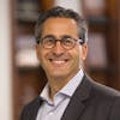Turnover caused by poor cultural fit can cost an organization between 50 to 60 percent of a person’s annual salary, according to the Society for Human Resource Management. But addressing this issue requires the ability to define and articulate a firm’s culture – its values, goals and practices — and then weave this understanding into the hiring process.
“What’s important is that hiring managers, interviewers, recruiters and everyone at your company can identify critical characteristics that mesh well with that culture,” writes Katie Bouton, president of the executive search firm Koya Leadership Partners, in Harvard Business Review.
Hiring for culture fit doesn’t mean hiring people who are all the same.
“The values and attributes that make up an organizational culture can and should be reflected in a richly diverse workforce,” Bouton writes. “For example, if collaboration is a key organizational value, people who have a genuine, authentic belief in the value of collaborative work will be a stronger culture fit than those who are more comfortable as individual contributors. This doesn’t mean that only people who come from one particular background or have one particular set of experiences are collaborative.”
Here are some questions that will help assess culture fit in an interview:
- What type of culture do you thrive in?
- What values are you drawn to and what’s your ideal workplace?
- Why do you want to work here?
- How would you describe our culture based on what you’ve seen? Is this something that works for you?
- What best practices would you bring with you from another organization? Do you see yourself being able to implement these best practices in our environment?
- Tell me about a time when you worked with/for an organization where you felt you were not a strong culture fit. Why was it a bad fit?
“If you assess culture fit throughout the recruiting process, you will hire professionals who will flourish in their new roles, drive long-term growth and success for your organization, and ultimately save you time and money,” she says.
About the Author

Steven Burns
Steven Burns, FAIA spent 14 years managing the firm Burns + Beyerl Architects, and during that time the firm’s earnings grew at an average rate of 24% per year. After founding his own software company, Steve took his management expertise to BQE Software, where he is refining their business strategy and product development for the company’s groundbreaking project accounting solution, BQE Core.
